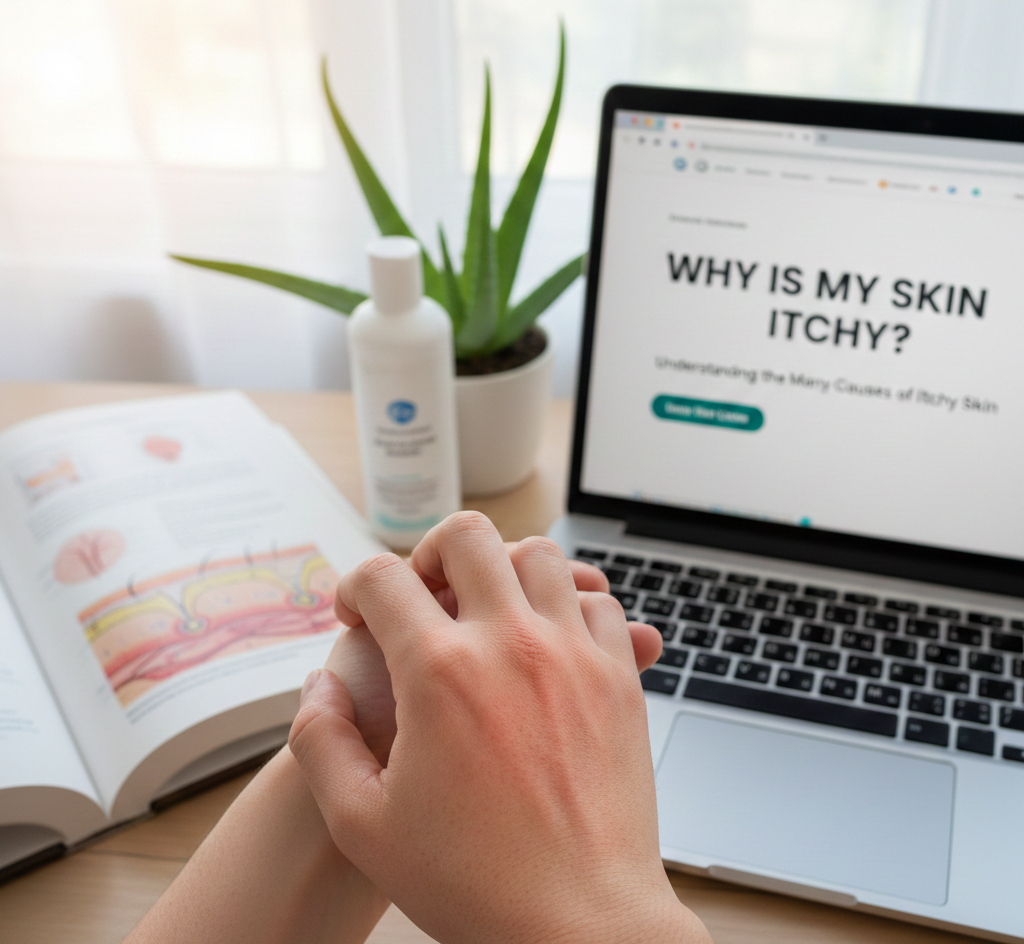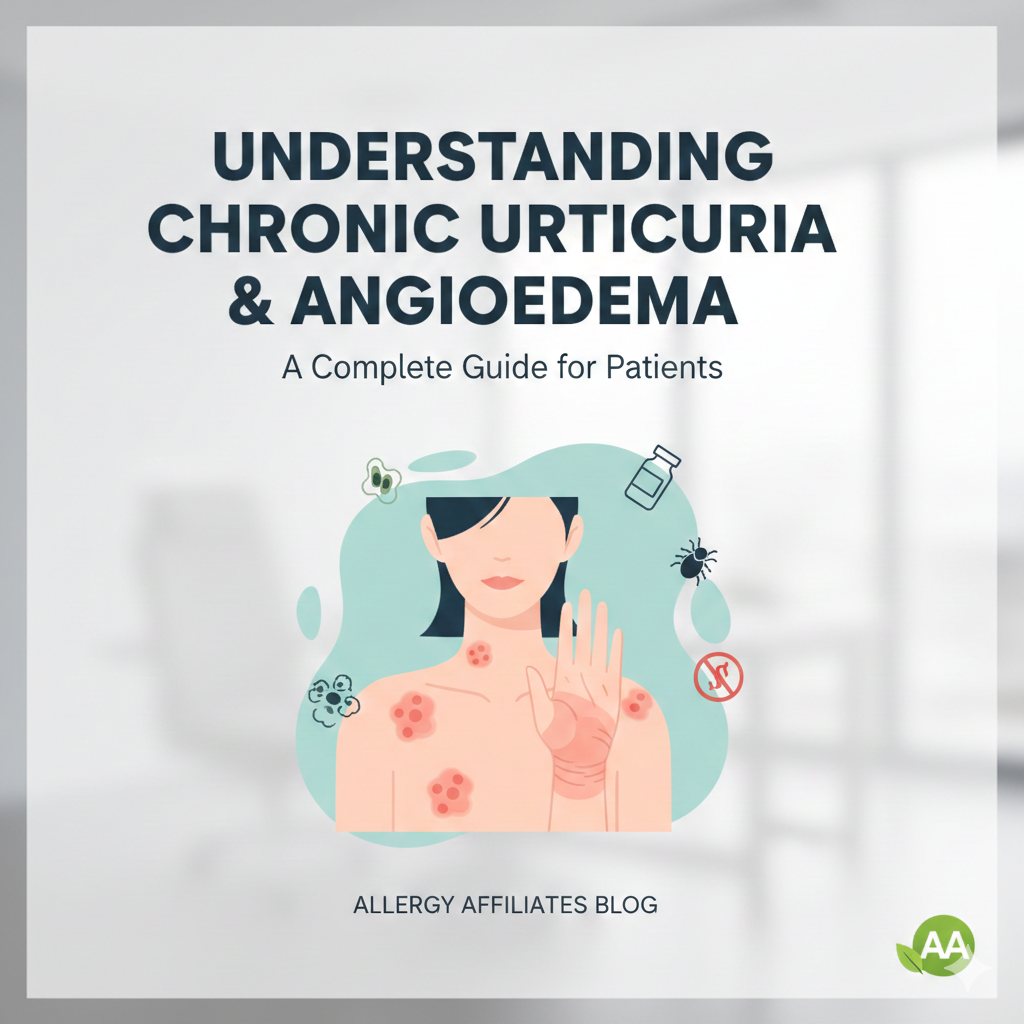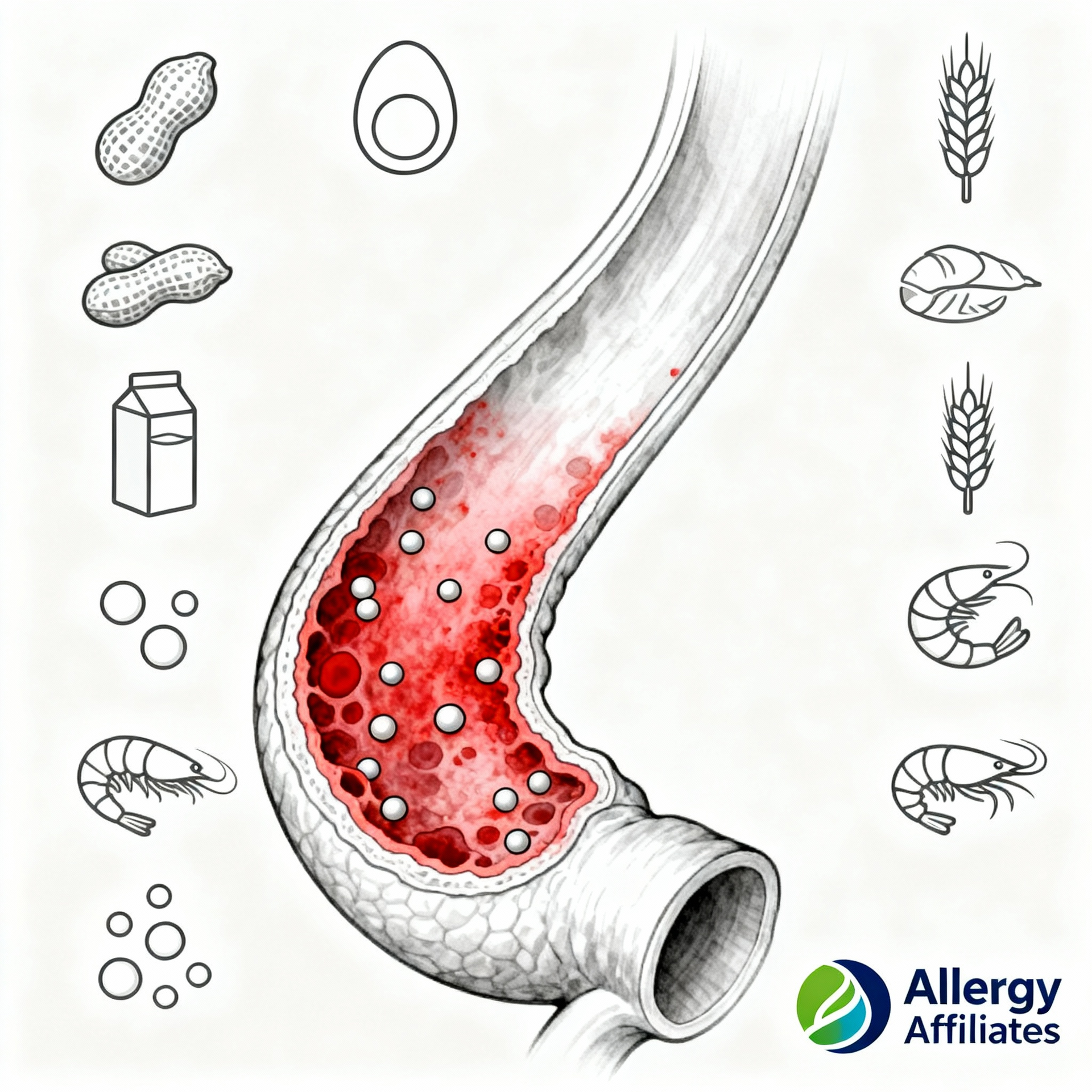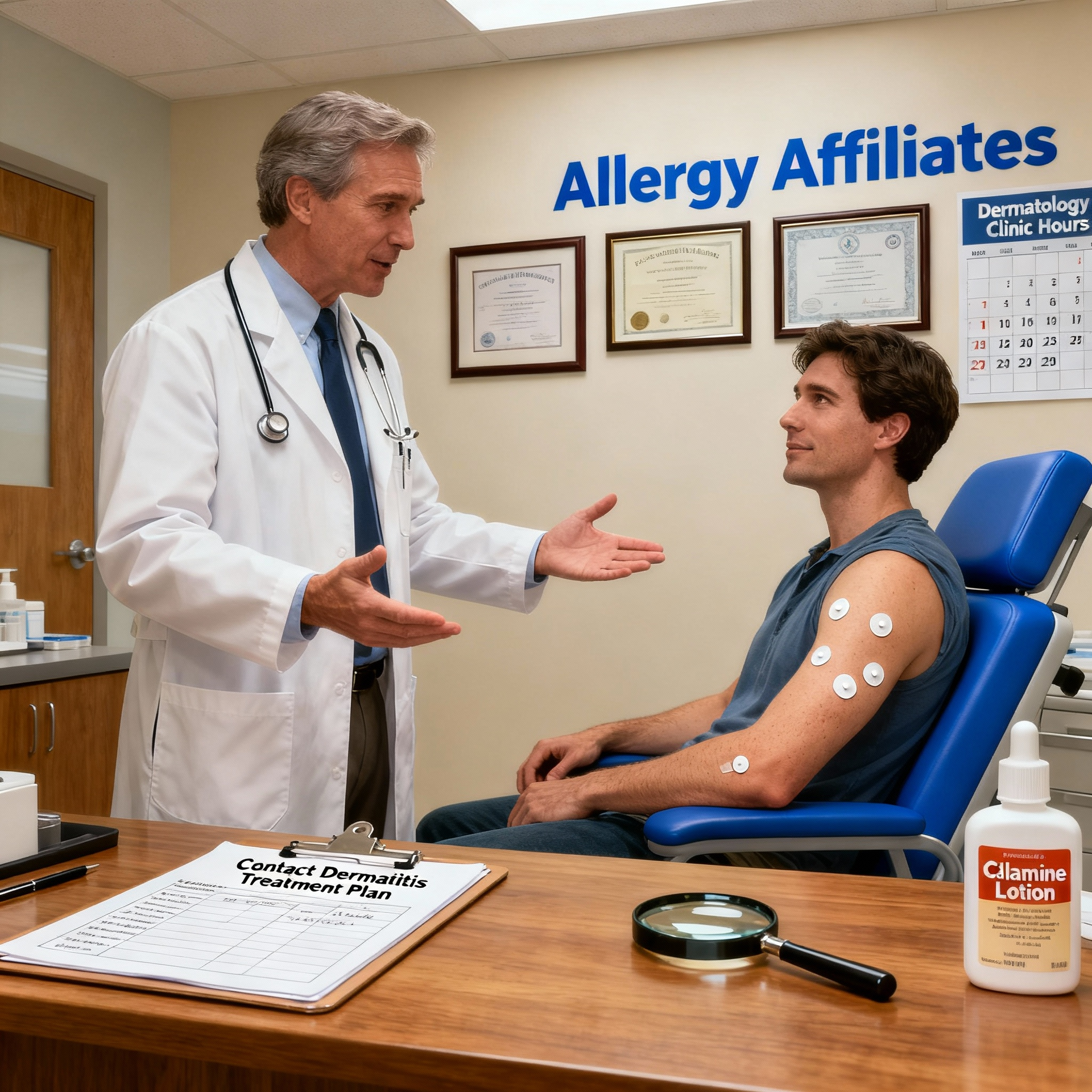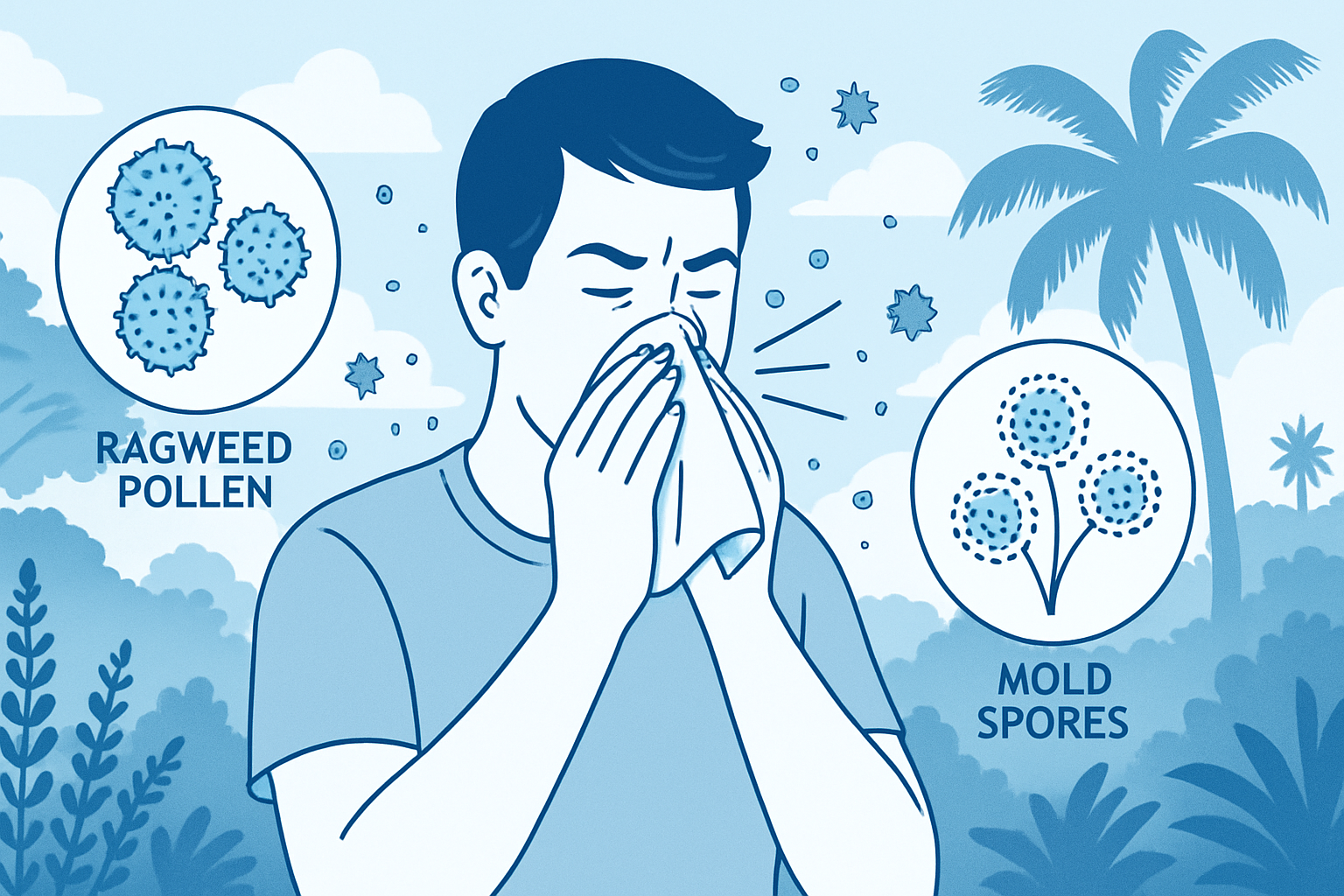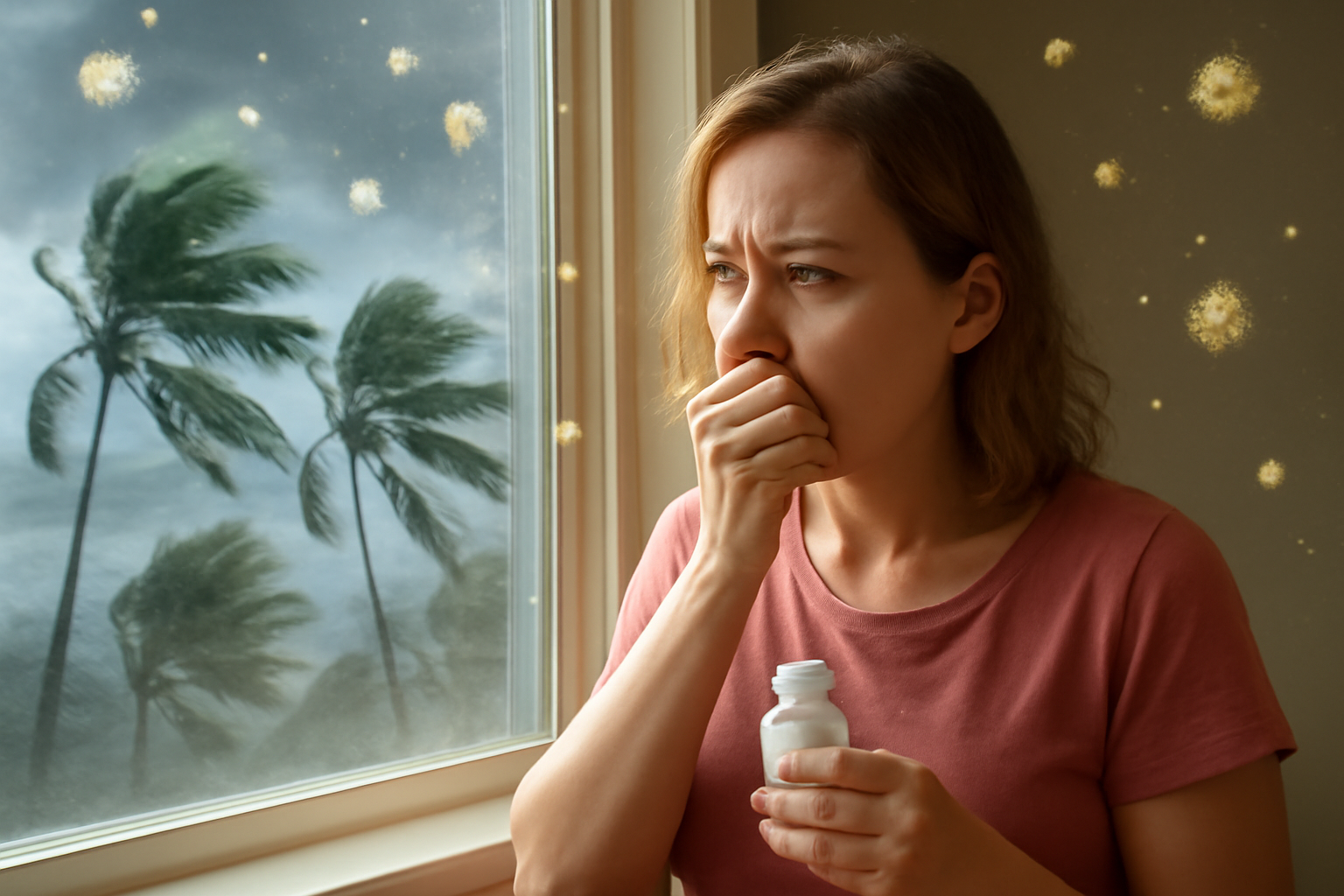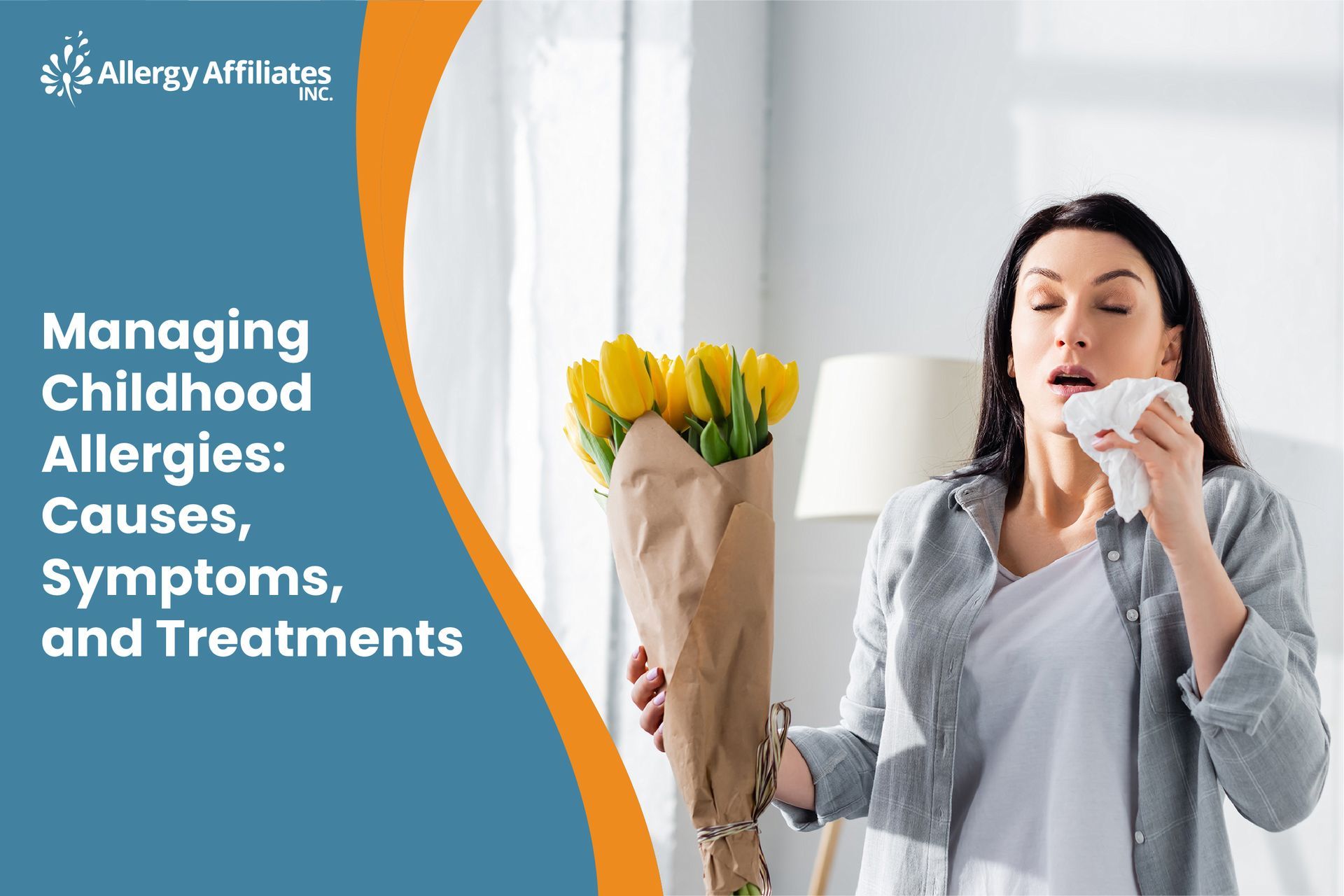
When your child struggles with allergies, it can be challenging to watch. Allergies in children can manifest as sneezing, itchy eyes, and other symptoms, which can be difficult for your child to suffer.
This article will cover childhood allergies, including allergy symptoms in kids, their causes, and treatments. When you have a greater understanding of common child allergies, you will be better equipped to care for and manage their allergies, providing them with the relief and comfort they require.
What are Pediatric Allergies?
Childhood allergies are abnormal immune system responses to things that cause them. These are also called allergens that are typically harmless to most individuals. This results in symptoms, which can range anywhere from merely bothersome to potentially fatal.
Most allergens aren't dangerous. But when someone has allergies, their body thinks these allergens are hazardous. The body then
uses immunoglobulin E (IgE) antibodies to fight the allergens.
Further, mast cells are unique cells that hold these antibodies. The antibodies stick to the allergens. This triggers the mast cells to release histamine and other allergenic compounds, resulting in an allergic reaction.
Causes of Common Childhood Allergies
Children have allergies more often than you might think, and many things can cause them. Listed below are the eight foods that cause about 90% of all food allergens
- Peanuts
- Milk
- Fish
- Eggs
- Wheat
- Soy
- Tree nuts
- Shellfish.
About 5% of children younger than 5 years old have food allergies. Most children outgrow their allergies as they age, but an allergy to peanuts, tree nuts, fish, or shellfish may last for life.
Moreover, the most typical allergens that can trigger allergic reactions in your child
are the following:
- Medicines
- Feathers
- Pollen from trees, grasses, and weeds,
- Inorganic latex rubber,
- Molds,
- Dust mites
- Skin oil, animal dander, and other feces and urine
- Stung by bees
- Pests like mice and bugs
Children’s Allergy Symptoms
Typical children's allergies can cause various symptoms, and it's vital to know what to look for if you suspect your child has one. Some of the signs of allergies in kids are:
- Diarrhea
- Vomiting
- Cramps
- Hives
- Swelling
- Eczema
- Lips, tongue, or mouth that itch or swell up
- Tightness or itching in the throat
- Trouble breathing
- Wheezing
- Reduced blood pressure
It doesn't take much food for a child with a severe allergy to have an extreme response. In fact, people who are very allergic can react to as little as
1/44,000 of a peanut kernel.
For symptoms of common child allergies, contact a pediatrician or allergist immediately.
Do not wait for your child to suffer further.
How Is a Child’s Allergy Diagnosed?
To determine if your child has an allergy, the doctor will take an entire health history and check them. The service could also do the following:
1. Skin test
The most prevalent allergy test is a skin test that looks for IgE antibodies to allergens such as food, pollen, or animal hair. The purpose of allergy skin tests is
to identify the allergens responsible for a patient's allergic reaction.
They accomplish this by applying a diluted allergen to your child's epidermis and then scratching or poking the area. After 15 minutes, if your child is allergic to the allergen, a small raised mark similar to a mosquito bite will appear. Skin tests can detect multiple allergens simultaneously.
Allergists can also perform an intradermal test. They will inject a minute amount of allergen directly beneath the skin. This testing method is more precise than puncturing or scratching the epidermis. The results of a skin test are immediately available, and your healthcare provider can explain it.
2. Blood Test
The purpose of allergy blood tests is to
detect IgE antibodies to specific allergens. The most widely used test is the RAST (radioallergosorbent test). When you cannot perform the epidermis test, you can apply blood tests for children with certain skin conditions or who have recently experienced a severe allergic reaction.
Positive blood test results for your child do not always indicate that they have an allergy. A physician familiar with your child's medical history can interpret the test. Also, consider that these tests may take longer; some allergy tests cost more than others.
3. Challenge Test
It's known as the
most accurate test for food allergies. You can use the challenge test alone to determine if your child has a food allergy.
An allergist oversees this examination that gives your child a minimal amount of the allergen by mouth. Inhalation is also an option. A challenge test is the only way to determine how bad an allergy is. Tests on the skin or blood can only tell how likely your child will react, not what kind of response it will be.
Children's Allergy Treatment
If your child has allergies, there are several options for treatment to manage symptoms and decrease allergic reactions.
1. Avoid the allergens
You can treat most allergies by
avoiding the allergen. If your child is allergic to peanuts, you must avoid foods that contain peanuts.
2. Medications
Medications are another option for treatment. Antihistamines
can control
- itching,
- sneezing, and
- Runny nose
Prescriptions of corticosteroids or epinephrine auto-injectors are for severe symptoms. Having this drug on hand is crucial, especially for severe allergic reactions.
3. Use Immunotherapy
The
cornerstone of the treatment of allergic children is allergen
immunotherapy. To reduce allergy sensitivity, give your child modest, increasing dosages of the allergen over time. This medication is helpful for specific allergies but requires constant medical supervision.
4. Work With Your Doctor
Your doctor can provide an allergy action plan
to assist you in
- anticipating,
- identifying, and
- Managing allergic reactions.
Your child can be happy and healthy with proper allergy therapy and control.
Consult the Experts on Childhood Allergies
You will find Allergy Affiliates by searching "childhood allergy clinic near me" or "allergist in Tampa, Florida." Dr. Sabharwal, a board-certified allergist and immunologist is an expert in diagnosing and treating allergies in children and adults.
From accurate diagnosis to customized treatment plans, we will ensure quality care for your child. Don't allow allergies to ruin your child's life any longer.
Click
here immediately to schedule an appointment and take the first step toward assisting your child's recovery.
